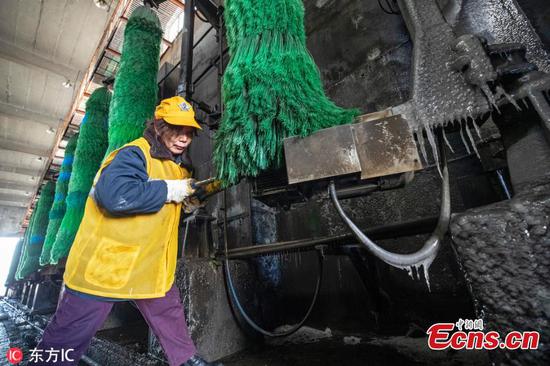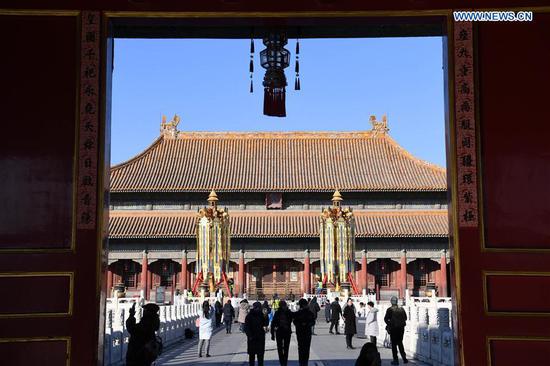Chinese buys of U.S. companies last year fell 65.8 percent to 8.7 billion U.S. dollars, according to the global research group Mergermarket. The sharp decline from 2017 contrasted with a 6.4 percent increase, to 1.35 trillion U.S. dollars, in overall cross-border mergers and acquisitions.
Data from Rhodium Group, a U.S. economic research firm, shows Chinese FDI in the U.S. declined to 4.8 billion U.S. dollars in 2018, the lowest level in seven years. Chinese investors sold 13 billion U.S. dollars of U.S. assets in 2018. Net Chinese FDI in the U.S. was negative if asset divestiture is counted.
Global FDIto the U.S. dropped 18 percent to 226 billion U.S. dollars last year, data from UN Conference on Trade and Development (UNCTAD) shows.
"Intensifying trade tensions, political instability, and increased regulatory scrutiny took their toll on the number of deals struck over the year", said Elizabeth Lim, research editor of Mergermarket.
Large deals
The U.S. Congress passed a law last August to expand the purview of the Committee on Foreign Investment in the United States (CFIUS), an inter-agency panel that can block acquisitions on national security grounds.
A number of large deals were blocked by CFIUS last year, including a proposed takeover of Qualcomm by rival Broadcom, and Alibaba affiliate Ant Financial' s 1.2 billion U.S. dollars acquisition of MoneyGram. One was shot down on the basis of national security concerns, the other over the fear of an information leak regarding U.S. military personnel.
Chinese buys of U.S. companies hit a record 55.3 billion U.S. dollars in 2016. Joy Dantong Ma, a researcher at MacroPolo, said the FDI spike in 2016 was highly abnormal. Four Chinese companies drove the boom that year in U.S. mergers – Wanda, Anbang, Fuxing and HNA. China has since moved to reduce the leverage of these heavily indebted private conglomerates.
The State Administration of Foreign Exchange strengthened the supervision of funds leaving the country and the China Banking Regulatory Commission required banks to investigate credit risks, targeting the four 2016 star buyers in June 2017.
Chinese investment has chilled in the U.S. since China continues to control outbound capital. The country seeks to optimize the structure of investment abroad and effectively restrain irrational decisions.
The National Development and Reform Commission (NDRC) said in July 2017 that it would continue to pay attention to the irrational tendency surrounding overseas investment in real estate, hotels and sports clubs among other fields, and take precautions concerning risks on foreign investment.
Mega deals in 2018 were concentrated in a few industries, including media, chemicals and telecoms. Health and biotech sector became the top destination for Chinese FDI in the U.S. for the first time, led by Chinese medical company Shandong Weigao's 850 million U.S. dollars acquisition of Argon Medical Devices.
UNCTAD estimates that FDI to developed regions will likely rebound from the "anomalous low" 2018 levels. But Elizabeth Lim from Mergermarket said that deals could face more scrutiny in the U.S. this year.


















































